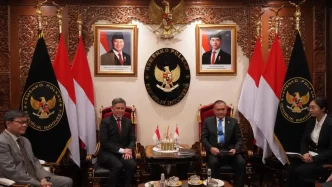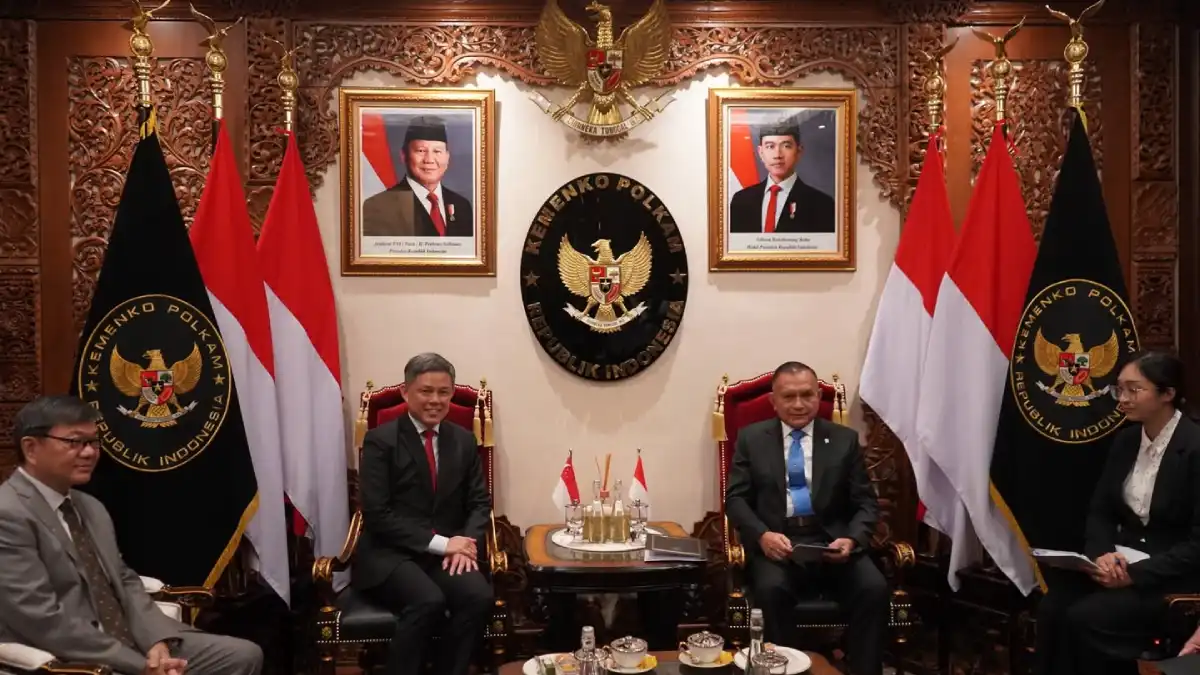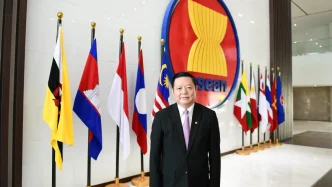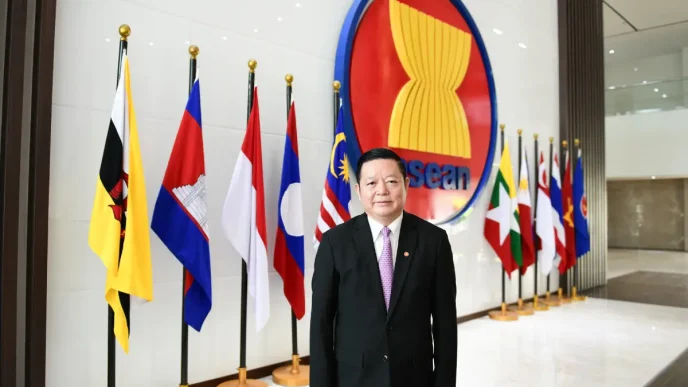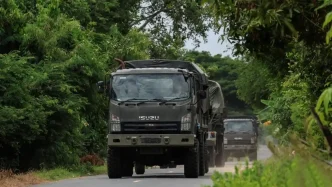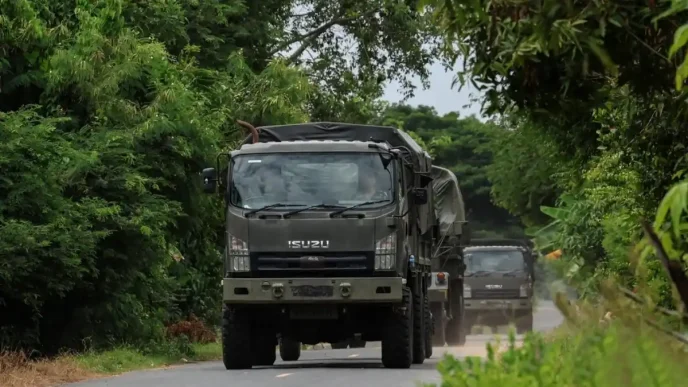Amid a backdrop of escalating global instability and regional rivalries, Singapore and Indonesia have reaffirmed their commitment to deepening defense cooperation. During a two-day working visit to Jakarta on August 6, 2025, Singapore’s Defense Minister Chan Chun Sing met with his Indonesian counterpart, Sjafrie Sjamsoeddin, to discuss enhanced military collaboration, joint exercises, and a unified stance on upholding international law. The talks, held in the Indonesian capital, underscore a shared determination to bolster ASEAN unity and maintain stability in Southeast Asia.
A Strategic Partnership in Uncertain Times
The agreement to expand defense ties comes at a critical juncture for Southeast Asia, a region increasingly caught in the crosshairs of superpower rivalries, particularly between the United States and China. Both Singapore and Indonesia, key players in the Association of Southeast Asian Nations (ASEAN), face mounting pressure to navigate these geopolitical currents while preserving regional autonomy. Their defense partnership, formalized through a long-pending Defense Cooperation Agreement (DCA) in 2022, has gained renewed urgency as global uncertainties intensify.
During the closed-door meeting at the Defense Ministry building in Central Jakarta, the two ministers focused on a coordinated response to regional volatility. According to an official statement from the Indonesian Defense Ministry, the discussions emphasized tightening military relationships as a cornerstone of maintaining stability and fostering good neighborliness. The agenda included plans for expanded joint training and combined military exercises, signaling a practical approach to strengthening bilateral ties.
Singapore’s official statement echoed this sentiment, noting that both ministers addressed ongoing geopolitical developments and stressed the importance of close collaboration. Open dialogue, they agreed, is essential to navigating the complex challenges facing the region. This commitment to communication and cooperation is particularly significant given the unpredictable shifts in the international order, which have left many Southeast Asian nations grappling with how to balance cooperation with non-confrontation.
Building on Recent Engagements
Chan’s visit follows closely on the heels of a similar trip by Singapore Armed Forces (SAF) Defense Force Chief Vice Admiral Aaron Beng just two weeks prior. During that meeting, Beng and Sjamsoeddin laid the groundwork for enhanced military cooperation, setting the stage for the current round of talks. The continuity of high-level engagements reflects a deliberate effort by both nations to prioritize defense as a pillar of their relationship, which has historically been defined by robust economic interaction.
One notable area of interest for Indonesia is Singapore’s advanced cybersecurity capabilities. Indonesian officials have openly expressed a desire to learn from SAF’s expertise in this domain, with discussions on potential cooperation opportunities forming part of the broader dialogue. As cyber threats become an increasingly prominent concern for governments worldwide, this focus on digital defense highlights the forward-thinking nature of the partnership.
A Call for Unity and Shared Success
Beyond the formal meetings, Chan delivered a keynote speech to approximately 250 members of Indonesia’s National Resilience Institute (Lemhanas), where he emphasized the importance of unity between the two nations. “We are not competing with one another. The real competition is never between Singapore and Indonesia” Chan stated on August 6, 2025. He went on to articulate a vision of shared progress, asserting that the true challenge lies in facing global uncertainties together. “For Singapore, we firmly believe that a successful Indonesia is good not just for Indonesians, not just for Singaporeans, but also for the region and the world.”
This message of mutual benefit resonates strongly in a region where individual national interests often intersect with collective goals. ASEAN, as a bloc, has long championed the principle of regional solidarity, and the Singapore-Indonesia partnership serves as a microcosm of that ideal. By framing their collaboration as a win-win proposition, Chan underscored the broader implications of their defense ties for Southeast Asia’s stability.
Broader Regional Implications
The discussions in Jakarta also touched on wider regional issues, with Indonesia reaffirming ASEAN’s role in conflict resolution. Through Sjamsoeddin, Indonesia highlighted the importance of maintaining strong international ties to prevent conflicts, citing tensions between Thailand and Cambodia as a reminder of the region’s fragility. “As a sovereign nation, Indonesia is committed to upholding peace, but at the same time to readying for any potential threats” the Indonesian statement noted.
This dual focus on peace and preparedness is a recurring theme in the defense policies of both nations. While Singapore and Indonesia advocate for dialogue as the primary means of resolving disputes, they are equally committed to ensuring their militaries are equipped to handle emerging threats. This pragmatic approach is evident in their plans to jointly develop military training facilities, a proposal that could further cement their strategic alliance.
Human and Community Dimensions
Chan’s itinerary also included a visit to a military-operated kitchen supporting Indonesian President Prabowo Subianto’s flagship free nutritious meal program on August 7, 2025. This gesture, while symbolic, reflects the multifaceted nature of defense cooperation, which extends beyond traditional military engagements to include community-focused initiatives. Such activities underscore the role of armed forces in nation-building and humanitarian efforts, reinforcing the idea that security and stability are not solely about combat readiness but also about fostering societal resilience.
Geopolitical Context and Challenges
The Singapore-Indonesia defense partnership must be viewed within the broader context of Southeast Asia’s geopolitical landscape. The region is a theater for competing influences, with the United States and China vying for strategic dominance through economic investments, military presence, and diplomatic overtures. For smaller nations like Singapore and Indonesia, maintaining neutrality while safeguarding national interests is a delicate balancing act.
Indonesia, as the largest economy in ASEAN and a key maritime player, holds significant sway in regional affairs. Its strategic location along vital shipping lanes, including the Strait of Malacca, makes it a linchpin for global trade and security. Singapore, meanwhile, punches above its weight as a financial and technological hub, with a highly capable military despite its small size. Together, their collaboration sends a powerful message about the potential for middle powers to shape regional dynamics through cooperation rather than confrontation.
Yet challenges remain. The rivalry between global superpowers has ripple effects, often exacerbating local tensions or creating divisions within ASEAN itself. Issues such as the South China Sea disputes, where overlapping territorial claims involve multiple ASEAN members, test the bloc’s unity. While Singapore and Indonesia are not direct claimants, their commitment to international law and ASEAN centrality positions them as mediators and stabilizers in these contentious debates.
Looking Ahead: A Model for ASEAN?
The deepening defense ties between Singapore and Indonesia could serve as a blueprint for other ASEAN nations seeking to navigate the region’s complex geopolitical terrain. By prioritizing joint exercises, military exchanges, and strategic dialogue, the two countries are building a framework for trust and interoperability that could be replicated elsewhere in the bloc. Their focus on cybersecurity and community engagement also points to a modern, holistic understanding of defense that addresses both traditional and non-traditional security threats.
Moreover, their partnership highlights the importance of bilateral relationships within the larger ASEAN framework. While the bloc as a whole strives for consensus, smaller alliances like this one can drive progress on specific issues, creating momentum for wider regional cooperation. If successful, the Singapore-Indonesia model could inspire similar collaborations, strengthening ASEAN’s collective resilience against external pressures.
As both nations move forward with their defense initiatives, questions linger about the long-term impact of their collaboration. Will their joint efforts translate into tangible outcomes for regional stability, or will they be overshadowed by broader geopolitical forces? For now, the renewed commitment to partnership offers a glimmer of hope in an otherwise uncertain landscape, demonstrating that dialogue and cooperation remain powerful tools for building a more secure Southeast Asia.

